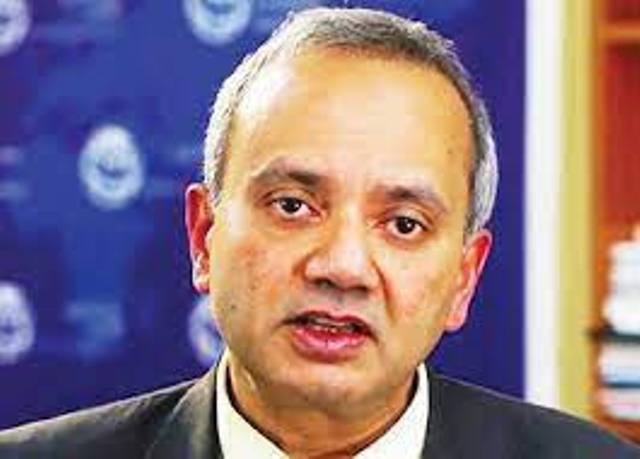The World Bank has projected that Nigeria would spend N4tn in subsidy payments on petrol in 2022 following the country’s postponement of removal of petrol subsidy by 18 months.
Country director of the Bretton Woods institution, Mr. Shubham Chaudhuri, stated this at the weekend when he and led some executives of the bank paid a courtesy call on The Punch Newspapers head office in Magboro, Ogun State, recently.
He said the bank’s role is merely advisory stressing that it has no ability to enforce anything.
“With economics, really, you are not meant to make a political decision. What you are meant to do is to lay out what are the cons and consequences of different decisions.
“So that is what we are doing, we are just being very clear that this would come with a fiscal cost and the fiscal cost is the number, perhaps N4tn this year.”
He said despite the fact that the price of oil had gone up, the rise in global crude oil prices was not helping Nigeria that much.
On why the rising oil price was not helping Nigeria as anticipated, Chaudhuri said, “The reason is that the cost of the PMS subsidy is going up. So at $85 per barrel, the NNPC was projecting that the cost of the PMS subsidy will be around N180 billion to N200 billion per month. In January when crude oil prices had already gone up to $90, $93, it (subsidy) still went up to N250 billion per month.
“Now you just mentioned it is $100 per barrel, our guess right now is that we are looking at N4tn or even more in the year 2022 as the cost of PMS subsidy.”
Continuing, he said: “You take 60 million litres a day, which the NNPC said is being evacuated from its depots, you take what is happening to the cost of imported world gas, price of gasoline, which is going up because crude oil price is going up.
“Right now, the differential I believe is about N200 per litre. So 60 million times N200 everyday is N12bn per day. Multiply that by 30, that is N360 billion per month. Multiply that by 12; it will be somewhere about N4 trillion per year.
“And the N200 billion, I think was when the oil price was around $93. So with oil prices at $100, the gap between N165 per litre and the (actual) cost of PMS is going to be more than N200 per litre.
“And that is the main reason we feel it is going to be a bit negative for Nigeria’s fiscal situation because oil production is not going up or may even continue to stall.”
The World Bank chief also noted that the issue of subsidy removal is Nigeria’s choice, adding that there should be a consensus among the political elites that should be communicated and accepted by the public.
He explained that if there was no consensus earlier, it could be a time for an eclipse of discussion around what should be the choice for Nigeria, adding that it had to be a consensus.
He further noted that despite the rise in global oil prices due to the Russia/Ukraine war, this might not have a significant effect on the country’s oil earnings.
“On the oil price, historically, in the last five decades, you will see that anytime crude oil price goes up, it helps economic activities in Nigeria, just because it becomes a source of free cash flow that people spend on a lot of things.
“Because the oil sector by itself is part of a relatively small part of the economy but the spillover is large. What was also the case in the last five decades was that high oil prices were good or the federation budget, finances, that is no longer true.
“In 2021, it was not true, and in 2022 it is not likely. We could be wrong, and we will be very happy to be wrong.”
However, the Major Oil Marketers Association of Nigeria (MOMAN) differed with the World Bank on the estimated cost of subsidy for the year say it would hit N6 trillion instead.
MMOMAN’s executive secretary, Mr. Clement Isong, said the N6 trillion projection is realistic if the current factors causing the rise in global crude oil prices persist.
“It (the projected N4tn) might be even higher. It is a function of how our exchange rate goes. It is a function of how the price of oil goes. We don’t anticipate that what is happening between Russia and Ukraine will last for too long.
“Hopefully if does not, the international prices of crude oil will come down and the availability of the product will go up, that is supply will improve. So hopefully the price of the finished product will come down.”
“If we are lucky and if things are on our side, then it (subsidy) might be less. But if things are not on our side, if you do the current calculation as at today, based on all the numbers today, if things do not improve, it can easily reach N6 trillion.
“So it can easily reach N6 trillion. It is a function of the exchange rate and the international cost of refining products, among others. So the truth is that we simply need to wean the country of the subsidy. This again is because in all the countries around us in West Africa, there is no subsidy.”
With The Punch report





















































